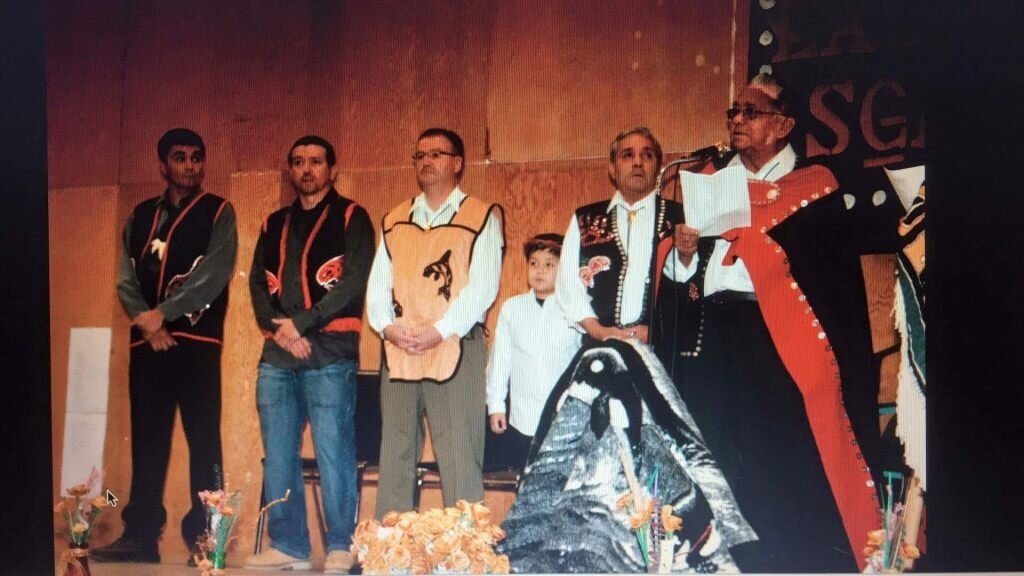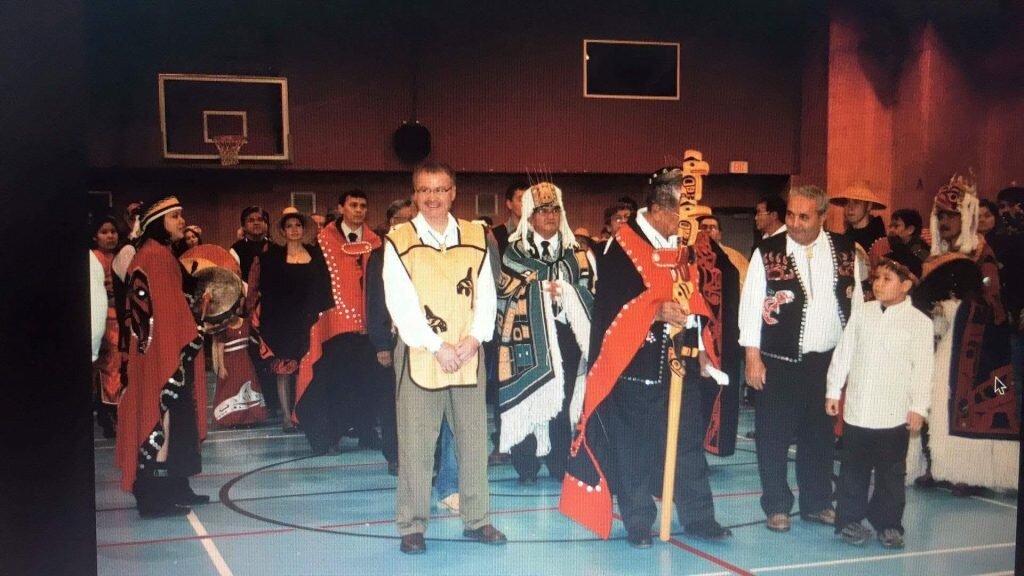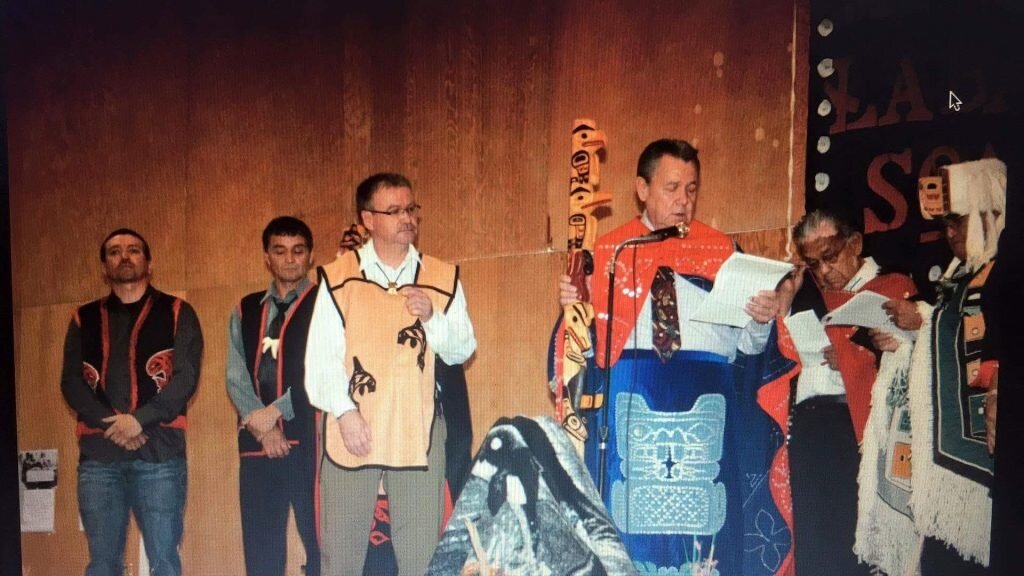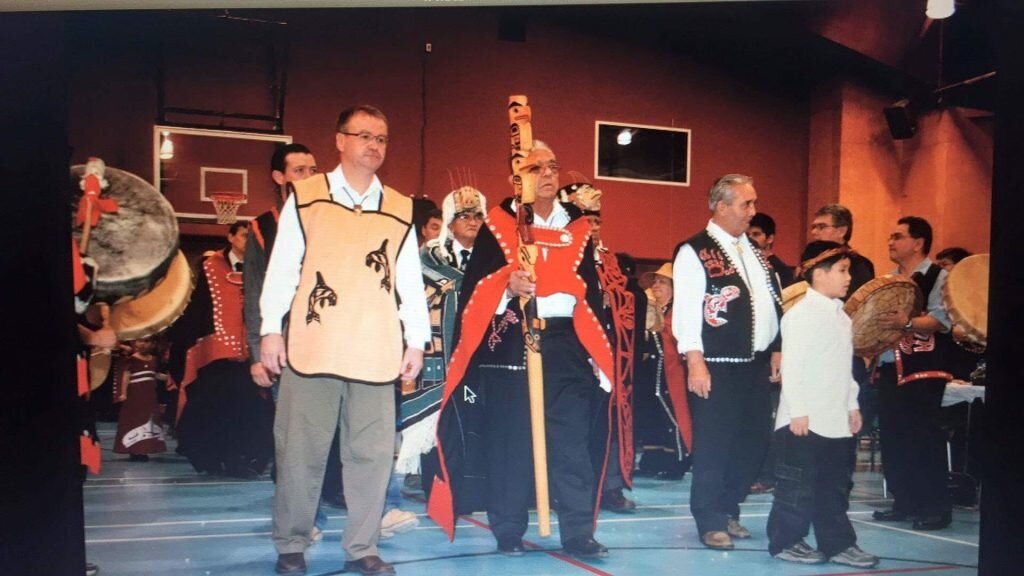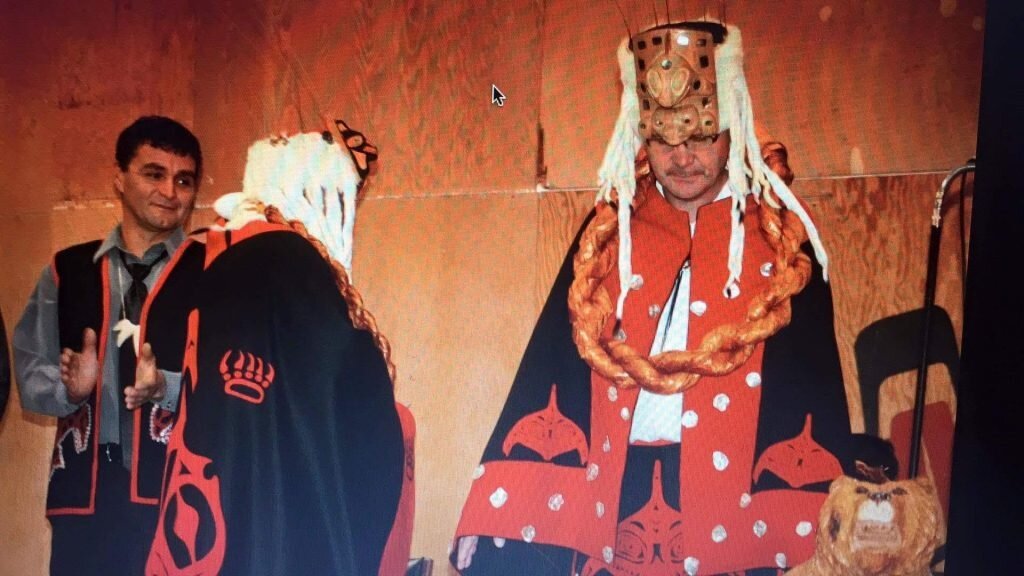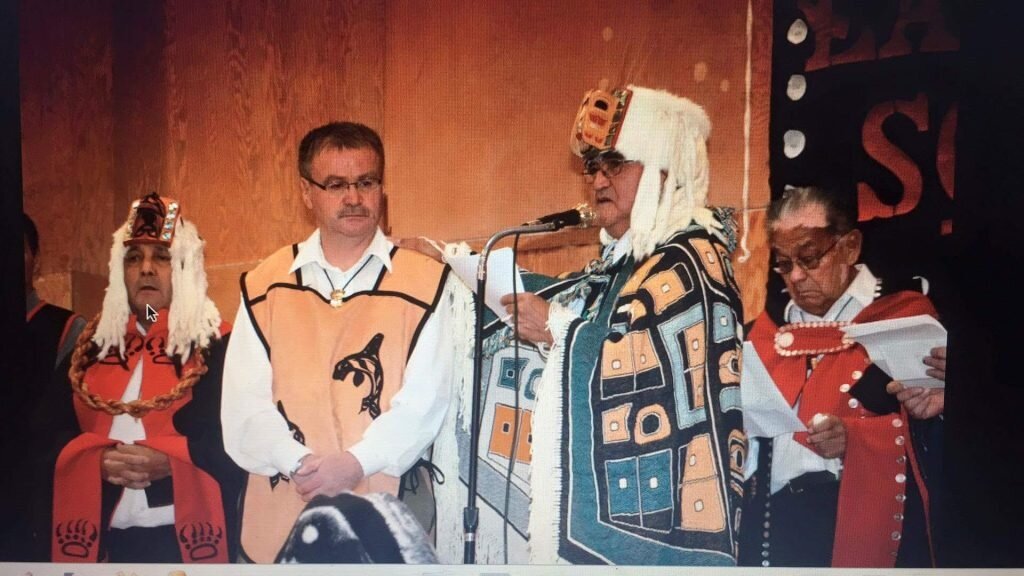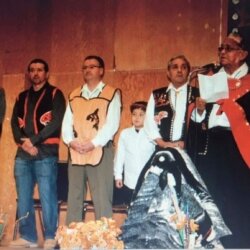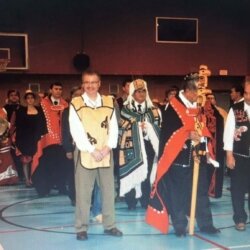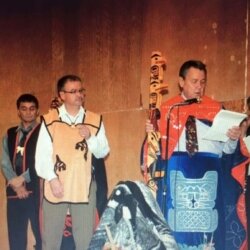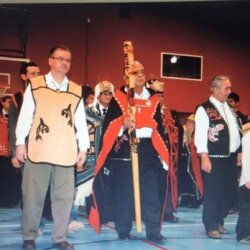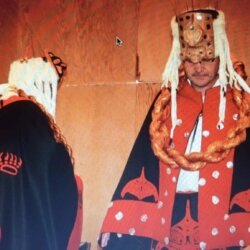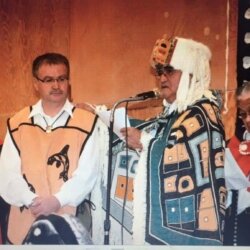Power struggle in northern B.C. deepens as pressure to approve LNG builds
Lax Kw’alaams hereditary chief accuses band members, local newspaper of defamation for questioning legitimacy of his claim to chiefdom
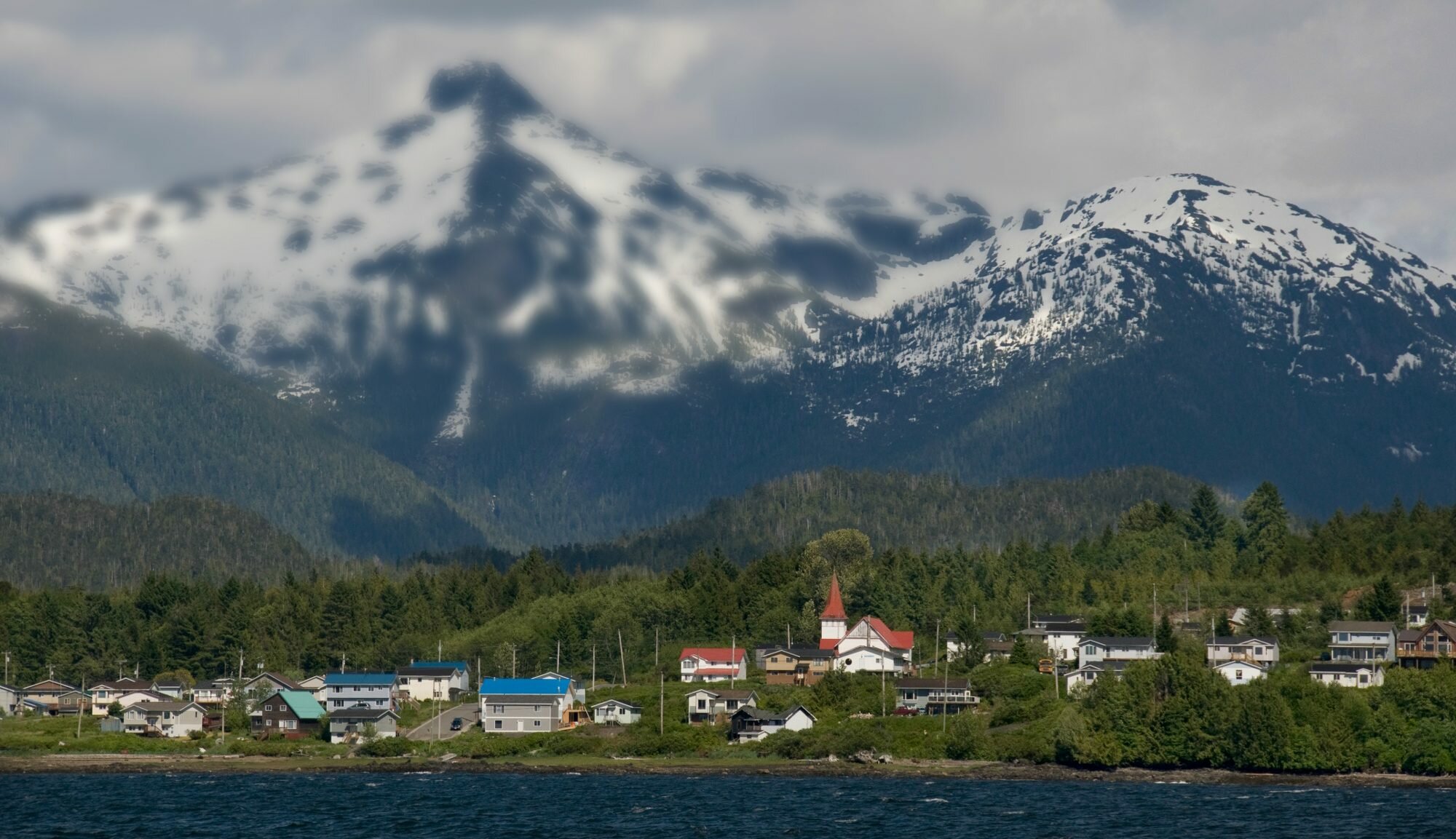
The war of words in northwest B.C. over Pacific NorthWest LNG (PNW LNG)’s proposed $36-billion liquefied natural gas (LNG) pipeline and plant at the mouth of the Skeena River has escalated, with a Lax Kw’alaams hereditary chief claiming he has been defamed by members of his community — and by a local Prince Rupert newspaper.
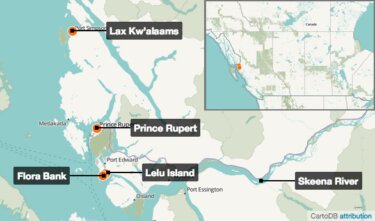
The defamation claim, by a leading opponent of plans to pipe fracked gas to Lelu Island for processing and export to Asia, highlights a deepening schism between a besieged band council that in March came out in favour of the project, and hereditary leaders and other community members who have vowed to stop the project in its tracks. Lax Kw’alaams band members had in 2015 voted against the project, despite an offer of a $1.2-billion benefits package, and this March’s sudden decision to support the project — just eight days after the band reiterated its opposition — is seen by many in the community as an unauthorized flip-flop by the band council.
The $36-billion project — an 800-km pipeline from northeast B.C. to tidewater, a gas hub on Lelu Island and a shipping terminus atop some of the most sensitive salmon habitat in the country — is a key plank in B.C. Premier Christy Clark’s energy investment and job creation agenda for the 2017 election. The province has been pressing Ottawa, and the local community, to greenlight the project. The premier has lauded First Nations who support her LNG plan, while decrying opponents as being anti-development.
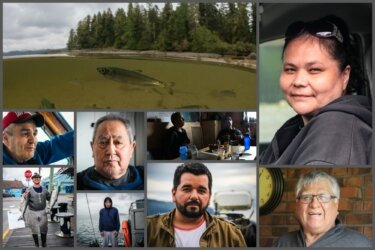
A Discourse Media investigation — “Divide and conquer: At the centre of the biggest resource deal in Canada, a small town is torn apart” — found no vote was taken by the Lax Kw’alaams First Nation in favour of the PNW LNG project, despite the B.C. premier’s claim that it did.
The political pressure on the small community has created enormous tensions between elected and hereditary leaders, and has deepened a divide between band members desperate for any economic lifeline in a depressed economy and people unwilling to risk their wild salmon resources on a huge industrial development in the mouth of a major salmon-producing river.
That division turned nasty and very personal last month, when a group of Lax Kw’alaams members released a statement saying that Donnie Wesley, Simoyget (hereditary chief) Yahaan, had no authority to call himself a chief, had no rights to the name Yahaan, had disrespected the ayaawx (or traditional Tsimshian law) and has been illegally occupying Lelu Island.
Wesley is a leading figure of what the premier earlier this year called the “forces of no” because of his opposition to development on Lelu Island. He and his supporters have maintained an occupation camp on Lelu Island since August last year.
The 11 signatories behind the statement challenging Wesley’s hereditary authority billed themselves as “Ts’msyen hereditary chiefs, matrons, elders and hereditary leaders of the Nine Tribes of Lax Kw’alaams.”
But Wesley’s counsel Chris Dafoe says there is no such entity as the Nine Tribes of Lax Kw’alaams. There are said to be nine actual Lax Kw’alaams tribes, and at times they have been represented under the banner of the Nine Allied Tribes of Lax Kw’alaams, but this latest group appears to have no official standing.
That hasn’t prevented media from picking up on statements released by the group.
On May 17, a Prince Rupert newspaper, the Northern View, printed what it called the group’s “unanimous demand” that “illegal protesters on Lelu Island stop their occupation immediately." Some of the allegations were repeated in another story the paper printed on June 8. Other media have picked up on the statement, with the Globe and Mail writing as recently as Monday, June 20 that “the Nine Tribes of Lax Kw’alaams declared its official support last month for Pacific NorthWest LNG.”
Acting for Wesley, Dafoe served papers to the 11 signatories this month, demanding an apology and retraction of the statement. Discourse Media managed to reach four of the signatories by telephone — Arnold Brooks, Randy Dudoward, Jack White and Alex Campbell. Brooks told Discourse Media he was “too old” to understand the question as to whether he would apologize to Wesley. Dudoward said he would make no comment at this time. White said, “I can’t speak at this time, I have to get some legal advice.” Campbell said, “We do have our own legal speaker and I don’t want to overrule anybody here.” Counsel for the 11 signatories has not returned a call seeking comment.
Wesley also demanded that the Northern View admit that it erred in publishing the group’s claims. On Tuesday, June 21, the paper published an extensive clarification. In it, publisher Todd Hamilton said that “the Northern View has not been able to independently verify either the claims of the signatories to the letter from the Nine Tribes of Lax Kw'alaams, or of Mr. Wesley. However, we regret not obtaining Mr. Wesley's comments before publishing the story.” He admitted that his newspaper “published a story based solely on the material contained in the letter and the press release” sent to it by the “Nine Tribes.”
In an exchange of letters and emails between Dafoe and Hamilton that began on June 10, Hamilton said the paper tried to contact Wesley but that he “has not made public a telephone number, an email address or any other contact information that that I can discover or that can be discovered by our reporters (past or present).” Hamilton reached out to Wesley through Facebook, but didn’t receive a response.
Discourse Media easily obtained Wesley’s phone number by calling 411, directory assistance. When reached, Wesley said he never saw the Facebook message. Wesley shared the correspondence between Dafoe and Hamilton with Discourse Media.
When contacted last Tuesday, June 21, Hamilton said, “At this point I have no comment. None whatsoever, thank you.”
Meantime, the Lax Kw’alaams First Nation — after announcing that it would hold “members only” information sessions on the PNW LNG project next week from June 27-30 — announced on Thursday, June 23 that those meetings are now postponed until further notice. “There has been a delay in the preparation and review of the information that was to be introduced at the meetings and the Band Council wants to be sure members receive the full and accurate presentation of the facts.”
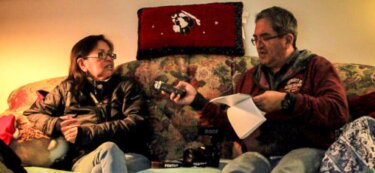
At Discourse Media we’re wondering: Does the right of freedom of the press apply to First Nation communities? How about in B.C.’s new treaty First Nations? If you’ve got a story about reporting challenges or accessing information, reporter Wawmeesh Hamilton would love to hear from you.
